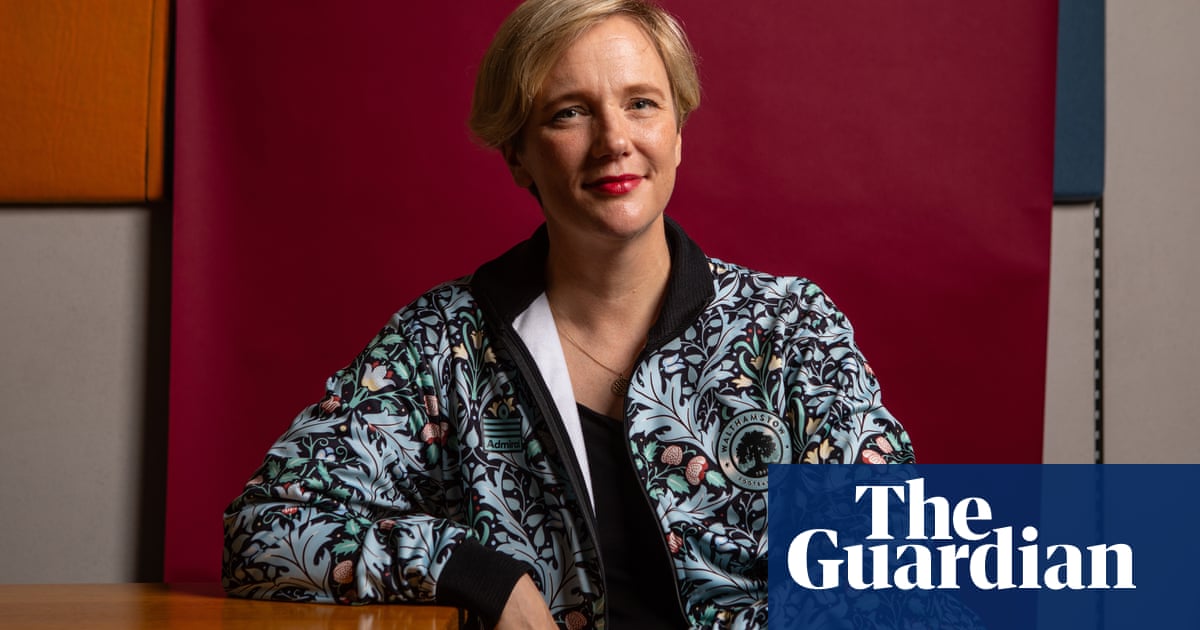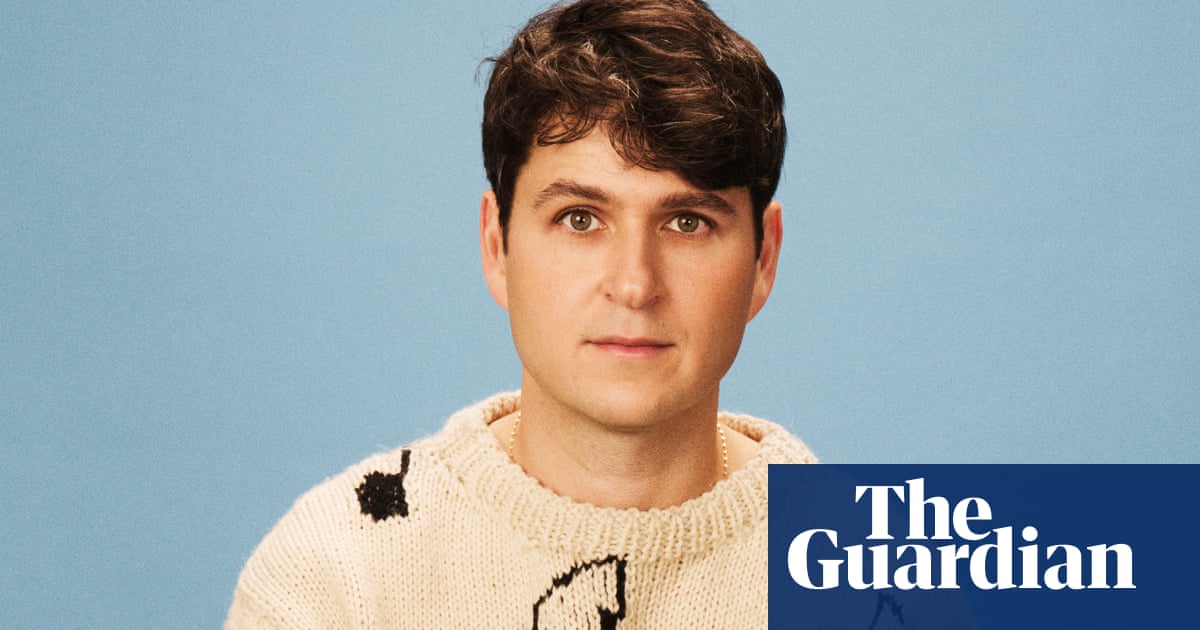
Before Stella Creasy became the Labour MP for Walthamstow in 2010, she was hoping to have “a life”, she says with a smile. “I’d spent a lot of my 20s doing politics – as a local councillor, working in parliament, studying.” She had already stepped back from Waltham Forest council in 2006 and worked for a thinktank, but when the Walthamstow MP Neil Gerrard, who had been in the seat since 1992, announced the following year that he would be standing down, she decided to go for it. Perhaps surprisingly for a politician, Creasy doesn’t, as far as I can tell, have a career path mapped out: she laughs and brushes off the question when asked what job she’d want should Labour win the next election. Instead, opportunities arise and, if they seem a good fit, Creasy goes for it. She stood for deputy leader in 2015 (she came second), is chair of the Labour Movement for Europe, and is now in the running for a new job – chair of the Committee on Standards, parliament’s watchdog. “One of the things that I have been working on with a number of different people for a while is addressing concerns about why we don’t take sexual harassment, abuse ...” She pauses briefly. “What it is about this place, which makes the laws on those issues, but we can’t make progress.”
A poll for Channel 4 News last year found one in 10 Westminster staffers had experienced sexual harassment. Just how prevalent is it? “I think if you ask most MPs, if they were honest with themselves, they will say there’s a lot more behaviour that is unacceptable and needs to be challenged, than is coming forward in the complaints process. People talk about there being lists of people to avoid – lists, plural. That should tell you there’s a problem.”
Creasy is less worried about the Westminster bars and drinking culture than what might be happening in offices. “We’re all in enclosed little offices.” She gestures as if to say look around – we’re in her office, and two young people are at their desks in the adjacent room. “Many of the stories and concerns I’ve heard are about power imbalances. A lot of young people get into politics because they have political ambition, so one of the things we have to end is the culture of senior people who become aware of disclosures who say, ‘don’t complain, because you don’t want to get labelled as that person’.” Creasy says she has heard from “a number of people” who were deterred from making a complaint. “We’re still at that point of ‘find a way to avoid them, don’t be on your own with them’ rather than, ‘actually, this is completely unacceptable’. And that damages us all.”
Creasy has not, she says, been sexually harassed during her time as an MP, but she was when she worked in parliament as a researcher while she was still a student. “I was propositioned by senior people, who now – and I still see them around – would not remember at all, because it was just something that they could do,” she says. They were not people she worked for. But was it implicit that she would get on in her career if she agreed? “Well, it was offering to talk about my career in the bedroom,” she says. “I mean, I was young but I spotted the trap in that.” She laughs grimly at the awfulness of it then adds: “I was terrified. But I also experienced that in other workplaces, so it’s not unique to politics. One of the things I’ve always hated is people saying ‘you’re not a wallflower, so you were able to cope’. No one should have to ‘cope’.”
She worries about any culture in which it is complaints that drive change, “because it takes an awful lot to complain. We’re asking a lot of the people who experience these problems to come forward, and be the person whose head is above the parapet. It’s one of the reasons we need to continue to work on harassment policies, so we’re not waiting for complaints to come forward. You need systems in place, to not just deal with the excesses, but actually change the culture.”
It isn’t a problem only Westminster faces, of course. When we meet, the allegations of rape and abuse against Russell Brand are all over the news, along with questions about who enabled his alleged behaviour, and what TV executives knew. “What I think is so powerful about the Russell Brand example, and what’s happening in parliament, is the open secret thing – people, when they get to a position of leadership, turning the other way, or minimising it. That in itself takes away the urgency of change.”
Who would be an MP these days? When Creasy, 46, was getting involved in politics in the mid-90s, there was “the excitement that the political movement I was part of could win an election, because it was always a bit theoretical. For the younger generation who’ve never had that experience of a progressive government, whose experience of politics over the last seven or eight years has been pretty divisive and toxic – and that division has been within political parties as well – it’s not been a hopeful time, generally. So there is a reasonable question – you must be a weirdo to want to do this.”
From lying prime ministers to cruel and nonsensical policies and scandalous deals to revelations about bullying and sexual harassment, people’s opinions of our elected representatives have never been lower. Maybe it’s pessimistic, but does Creasy look around the Commons and think perhaps people have a point? “There are people that you do think, ‘no, please don’t do that’ because they’ve become the exemplar rather than the exception,” she says. But contempt for politicians is hardly a new thing, she points out. The joke in her family, she says, “is that when I told my mum I was standing, she was like, ‘Have you considered being an estate agent?’ I think what worries me more now is that people are losing hope.”
At the beginning of Creasy’s parliamentary career, constituents at least talked to her for a while before they got angry. “Now, they’re angry. They also think that you probably won’t do anything – not that you can’t, but you won’t – and then they’re mildly surprised if you respond. One of the things I think is a common experience of lots of MPs is sometimes if you get abusive messages, and you write back, they’re like, ‘Oh my God, you read it’. As if we’re so disconnected now, such an elite, that we can’t even read an email. That’s quite a damning indictment of who we are, and why we do what we do.”
Creasy doesn’t seem worn down by it personally, and she is very careful not to look as though she is complaining. Nothing about people’s anger surprises her, “because this is the first generation that isn’t going to progress in the way that its predecessors did.” And politics has, she says, “been heavy on blame, short on solutions for so long. Populists on all sides go around saying ‘if you think life is crap, that’s who you should blame’. That anger, that fire, is there and it’s dangerous because it’s also impotent. It doesn’t actually change anything. I am not a masochist, I don’t do this job for the fun of it. You do it because you can make a difference.”
Creasy spent the first part of her childhood in Manchester before moving with her family to Colchester. Relocating from a leftwing city to a rightwing environment politicised her: “What I think is frightening and sobering to me now is we’re even more divided than we were in the 1980s. I think the rot is even deeper.” She didn’t particularly have ambitions of becoming a politician, but she was always a campaigner, learning an early lesson of principles over popularity when she campaigned to get Nestlé products out of her school vending machine in protest at the baby milk scandal. “In an all-girls’ school – no chocolate! It lasted a day,” she says with a laugh. “It was like, oh, you’ve always got to think about what happens next, haven’t you?”
She has been a backbencher since 2015, and fought off an attempt to have her deselected during the Corbyn years. When Creasy put herself forward for the standards committee chair (Harriet Harman is the other nominee so far), the Conservative MP David Davis, supporting her, said he wanted “a non-establishment character … someone who doesn’t mind rocking the boat”. She has been scathing about the lack of maternity rights for MPs, which forced her to bring her 13-week-old son into a Commons debate, and she hasn’t been afraid to criticise policies she doesn’t agree with, such as Keir Starmer’s pledge to keep the two-child benefit cap. Does she feel like an outsider? “Not at all,” she says. “I feel very much part of the Labour movement. I just don’t think that you should be unquestioning.”
Women MPs receive a disproportionate amount of abuse, and for Creasy, having something of a profile, the sheer volume of it means, she says, “you almost don’t see the death threats, the rape threats” – though she points out her black and minority ethnic colleagues get even more, which is “horrific and relentless”. She has campaigned for several years to get misogyny recognised as a hate crime; earlier this year, the government confirmed this would not happen, but change has forged ahead in other ways.
Last week, legislation was passed making sex-based harassment in public a crime, explicitly recognising misogyny. “If you’re not bothered about who gets the credit, you can do all sorts of things,” says Creasy. She would still like to see misogyny recognised as a hate crime, but “I think what we need to do now is learn from how the police implement it. Then I suspect we’re going to have to be clear that it’s not just when it happens on the street. But now we’ll have a model to use, and every police force will have to record [sex-based harassment]. The Met was refusing to record it. The Met, at one point, said ‘if we record it, we have to do something about it’.” She laughs. “Yes, that’s the point.”
Does the abuse make her fear for her safety? She pauses. “We’re supposed to have parliamentary security, it’s all a work in progress.” Late last year, a complaint was made to social services about Creasy’s political views and suggested her two young children should be taken away from her; although the complaint was quickly dismissed, it still had to be looked into. “The people who’ve come for my kids, that’s the point where it really hits home,” she says. “It would be very strange for anyone to not think, ‘let’s just make sure we’re not missing anything’ [in terms of making sure security is tight]. One of the things I have done persistently is to challenge being told ‘because you’re not on the frontbench, your family don’t get any support’. They’re targeting my family to get to me, so that doesn’t make any sense.”
She worries for her team, she says, “because we’ve had people physically attack my office.” And it frustrates her that the “emphasis from the police and the parliamentary authorities is about us avoiding risk rather than dealing with [perpetrators].” When Creasy was supporting the campaign in Northern Ireland to legalise abortion, “people targeted my town centre, and the response from the police at times was very much about their right to protest. I was, like, they’re not protesting, they’ve got a picture of my head next to a dead baby, they may as well put a target on it, and [they have a campaign] called ‘Stop Stella’. That’s a pretty clear incitement to attack somebody. I was 28 or 29 weeks pregnant at the time, so I was particularly vulnerable.”
Does the culture of anger and abuse make life harder for her? “It doesn’t matter, if it’s my life,” says Creasy. She seems so wary of complaining about it – she loves her job, she says, and it’s a privilege – but it does matter, because if this is what life is like for some MPs, who would want to do it? She talks for a while about the challenge of the left to improve people’s lives and opportunities. As it currently stands, she does worry that, potentially, our elected representatives will be “only people who enjoy conflict. That’s probably not a great way to make progress.”
In 2022, Creasy set up MotherRED, which supports women with children – a group lacking in parliament, especially those with young children – to stand for Labour selection. Often potential candidates want to talk to her about the practicalities of political life while bringing up young children and issues such as maternity cover (still nonexistent for MPs; Creasy was the first and only MP to use a locum for her first maternity leave, but she was scathing of the Independent Parliamentary Standards Authority which didn’t allow her one for her second). “But they also want to know about the risk, and that breaks my heart because nobody should be going into a job worried that they might be at risk,” she says. “Look, Jo [Cox] was my friend. I got on really well with David [Amess], he was a lovely guy. It’s a very real thing for this generation of politicians.”
She deals with it, she says, by having “a tribe” of friends. “You have to have a healthy hinterland. I have two toddlers, I don’t get to go to as many gigs as I used to, but being in the mosh pit at a Wedding Present gig was a good release, especially because we’re all of a certain age now, so the mosh pit doesn’t move that fast.” And she always remembers the words of her mother, who was the headteacher of a special school and now runs a night shelter: it’s not about you. “When you stop being narcissistic – which in politics is a very easy thing to be, and we’re all guilty of it – you can focus on what could be done. I guess the thing I find motivating is thinking, ‘actually, what if we did change it?’”












